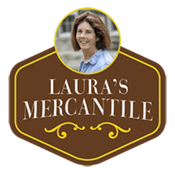Dear Friends,
At the fall equinox, farmers pause to reflect on the growing season, with harvest upon us. Here at Mt. Folly, I’m dispensing with happy talk. From Covid to climate, the year has been rough, so rough I’ve had to summon my inner mule.
Here is the back story, some of which you may know:
I became aware of the climate crisis as a Donella Meadows Fellow in 2007-2008. After the fellowship, I happened upon the work of Dr. Rattan Lal at Ohio State University. His calculations showed the power of restoring land to its original role as a carbon sink. Plants breathe in carbon, storing some of it in their leaves and stems, and sending 70% of it to their root systems, where mycorrhizal fungi and other microbes, in the right conditions, store it.
From there, I read a 2014 Rodale Institute paper which read, “Regenerative organic agriculture can sequester carbon and reverse climate change…. With the use of cover crops, compost, crop rotation, and reduced tillage, we can actually sequester more carbon than is currently emitted, tipping the needle past 100% to reverse climate change.”
With those sentences from Rodale, a respected organic organization, I was off…
Mt. Folly can put a check mark by the first four practices. We use cover crops and make many yards of compost every year. Our crop rotations are solid. But reduced tillage? On organic farms we don’t use herbicides, so weed control necessarily is mechanical. We have a barn full of plows, harrows and cultivation equipment.
Rodale seemed to have the answer. Indeed, Dr. Zach Bush spoke at Rodale in 2019 and praised their team for replacing the plow with a roller-crimper. I emailed Rodale’s chief soil scientist and purchased a roller-crimper manufactured to their design. We planted our rye cover crop per instructions, rolled it down successfully and planted into the mulch. (Watch here)
Did it work? No. We’ve had to sacrifice crops, plow them under, and in the fields remaining yields will be extremely poor. The Johnson grass and cocklebur is so bad I’ve developed allergies, and even worse, I’ve had to decline an American Farmland Trust experiment involving soil health on an organic farm, comparing no- till roller crimping to harrowing in a cover crop and cultivating.
If you are a Homestead Customer or a fan of Wildcat Willy’s, why should you care? If nothing else, we’ve promised transparency and a real farm connection. (Don’t worry, the organic hemp, which we cultivate, is in the barn, and the whiskey rye is distilled and barreled.) We are trying to be part of the solution to the climate crisis, and I want folks to understand the difficulty and promise of this way out.
In 2021, this didn’t work. The economic costs are significant, and the environmental costs are considerable. But powered by my inner mule, we have regrouped and have a plan. More about that in the next letter. You can follow Mt. Folly on Facebook and Instagram to see the interim steps.
Fondly,

www.mtfollyfarm.com
www.laurasmercantile.com
www.wildcatwillysdistillery.
www.dryridge.org





